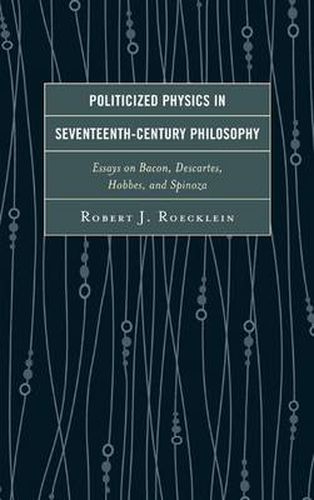Readings Newsletter
Become a Readings Member to make your shopping experience even easier.
Sign in or sign up for free!
You’re not far away from qualifying for FREE standard shipping within Australia
You’ve qualified for FREE standard shipping within Australia
The cart is loading…






This title is printed to order. This book may have been self-published. If so, we cannot guarantee the quality of the content. In the main most books will have gone through the editing process however some may not. We therefore suggest that you be aware of this before ordering this book. If in doubt check either the author or publisher’s details as we are unable to accept any returns unless they are faulty. Please contact us if you have any questions.
In the origins of Western philosophical thought, doctrines of physics intertwined with the debate between political philosophers. It is for this reason that Plato devoted his dialogues Theatetus and Parmenides to investigating and meeting the arguments of his principal philosophical adversaries. The doctrine of atomism, which developed under the influence of Parmenides’ philosophy, is one that Plato refutes directly. In the modern era of philosophy and science, a revived doctrine of atomism has been treated as apolitical. Atomistic postulates lay at the root of the doctrines of Early Modern philosophers and exert a great influence upon cultural and political teachings. In order to understand Early Modern Philosophy, therefore, and especially in order to examine Early Modern political science, one must address the atomistic theory of body which lies at the root of Early Modern metaphysics. In the metaphysical domain, or in the domain of natural philosophy, the Early Modern philosophers radically reduce the role that ordinary opinion may play in political and cultural life. The majestic declarations concerning the rights of man, and the gospel of utility characteristic of the political domain of Early Modernity, therefore conceal a shrunken influence fated for the demos in the new politics. In order to take the measure of the new political science, it is necessary to take the measure of the revived doctrines of atomism. If these doctrines can be disproved, by reviving Plato’s critique, we will be able to take a critical look at the political doctrines that lie upon the foundations of the politicized atomism.
$9.00 standard shipping within Australia
FREE standard shipping within Australia for orders over $100.00
Express & International shipping calculated at checkout
This title is printed to order. This book may have been self-published. If so, we cannot guarantee the quality of the content. In the main most books will have gone through the editing process however some may not. We therefore suggest that you be aware of this before ordering this book. If in doubt check either the author or publisher’s details as we are unable to accept any returns unless they are faulty. Please contact us if you have any questions.
In the origins of Western philosophical thought, doctrines of physics intertwined with the debate between political philosophers. It is for this reason that Plato devoted his dialogues Theatetus and Parmenides to investigating and meeting the arguments of his principal philosophical adversaries. The doctrine of atomism, which developed under the influence of Parmenides’ philosophy, is one that Plato refutes directly. In the modern era of philosophy and science, a revived doctrine of atomism has been treated as apolitical. Atomistic postulates lay at the root of the doctrines of Early Modern philosophers and exert a great influence upon cultural and political teachings. In order to understand Early Modern Philosophy, therefore, and especially in order to examine Early Modern political science, one must address the atomistic theory of body which lies at the root of Early Modern metaphysics. In the metaphysical domain, or in the domain of natural philosophy, the Early Modern philosophers radically reduce the role that ordinary opinion may play in political and cultural life. The majestic declarations concerning the rights of man, and the gospel of utility characteristic of the political domain of Early Modernity, therefore conceal a shrunken influence fated for the demos in the new politics. In order to take the measure of the new political science, it is necessary to take the measure of the revived doctrines of atomism. If these doctrines can be disproved, by reviving Plato’s critique, we will be able to take a critical look at the political doctrines that lie upon the foundations of the politicized atomism.